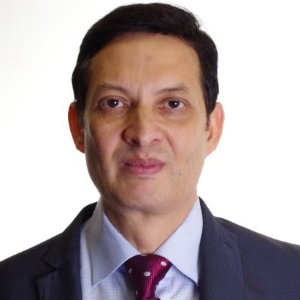Abstract:
Cardiovascular disease (CVD) is the leading cause of death and disability worldwide. The primary prevention of CVD is dependent upon the ability to identify high-risk individuals long before the development of overt events. This highlights the need for accurate risk stratification.
For a number of years healthcare professionals have been using a wide range of traditional methods and tools for assessing and calculating individual’s predicted future risk for cardiovascular disease including coronary and cerebrovascular disease. They include taking into account presence of co-morbidities such as Diabetes Mellitus, Hypertension, Dyslipidaemia, smoking and family history. Risk scoring tools such as Framingham and Risk score and also utilization of some basic cardiac investigations. These methods have been useful but we realise that they always do not adequately and accurately predict the cardiovascular risk.
Critical evaluation of risk markers and risk assessment methods have become even more important as novel markers of cardiovascular risk are identified by technological advances in genetics, genomics, proteomics, and non-invasive imaging. They have been shown to evaluate the risk of an individual in more depth than the traditional methods and perhaps also provide insights into the unexplored and hidden risks.
However, these novel methods of cardiovascular risk assessments are costly and not readily available and hence they must be judiciously utilised to provide a more individualized and personalised approach so that this strategy is more cost effective.
Biography:
Dr Syed Raza graduated from Aligarh University in India in 1993. After completing his postgraduate degree in Medicine from the same university, he moved to the UK for higher specialist studies. He successfully completed MRCP and CCT and later also awarded Fellow of the Royal College of Physicians of Edinburgh (FRCP ). He was awarded Professor John Goodwin prize for outstanding performance in Diploma Cardiology exam at Hammersmith Hospital, University of London in 2001. Dr Raza is Fellow of American College of Cardiology and American College of Chest Physicoans. He is also Fellow of European Society of Cardiology and Fellow of European Society of Cardiovascular Imaging. He is also on the committee of Acute Cardiovascular Care. Heart Failure and Cardiovascular Imaging (European Society of Cardiology).
He is currently working as Consultant Cardiologist and Head of the department of Medicine at Awali Hospital, Bahrain. Dr Raza is a board member of the Hospital Excecutive Committee. He also chairs the Resuscitation committee and Privileging and Credentialing Committee. Prior to this he worked as consultant in Cardiology at Mid Cheshire Hospitals, NHS trust, United Kingdom. He is the regional educational coordinator for RCP Edinburgh and examiner for MRCP exam for the Royal College of Physicians of UK. He has partipcpated in some well known trials and reasearch. He has to his credit numerous publications and he has presented his scietific work in different parts of the world. He is peer review author for some well respected International journals. He is permanent Review author for abstracts for European Society of Cardiology Annual Congress.
He is on the editorial board of International Journal of Endovasculat Treatment and Innovative Techniques. Dr Raza is a teaching faculty member for Healthcare Management and Leadership at Westford University, Dubai campus. He is certified American Board in Medical Quality. Dr Raza frequently organises a number of seminars, webinars, symposia and workshop on various healthcare, quality and safety topics. Dr Raza has led the first awareness campaign in Heart Failure in the Middle East in 2017. He is chairman of BAPCO's health promotion unit. His special interests are Cardiovascular Imaging, Heart Failure and Acute Cardiovascular Care. He is founder and chairman of Raza Foundations which works for educating and increasing awareness on various health related topics amongst the general public as well as provide free healthcare services to poor as one of the charity initiatives.



